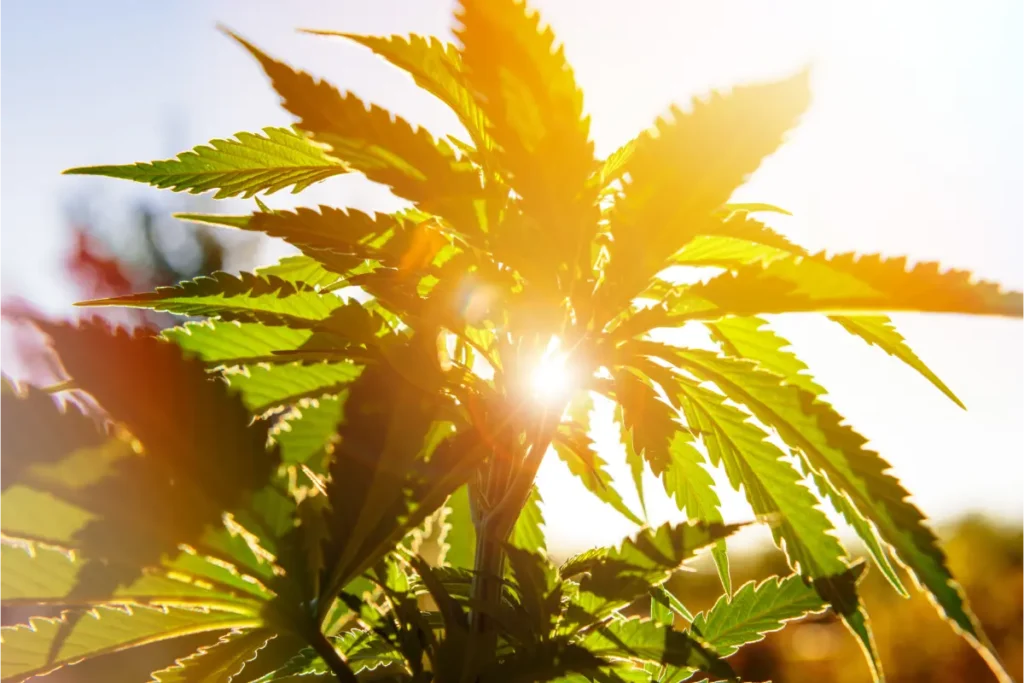
Refurbished cannabis testing equipment and smart procurement strategies offer cost-effective cannabis testing solutions for labs looking to scale without overextending capital.
When it comes to building a cannabis testing lab, careful planning, capital management, and equipment selection are essential – especially in early-stage or newly legalized markets.
At the same time, lab founders and operations leads often face a tricky challenge: how to set up a compliant, high-throughput testing facility without over investing before market demand stabilizes.
To solve this, refurbished analytical instrumentation paired with flexible financing and support can make a meaningful difference.
In this guide, we’ll break down common cannabis testing workflows, the equipment best suited for the job, and how labs can phase their investments to grow with confidence – without compromising on quality or compliance.
Most cannabis testing laboratories are responsible for running a defined set of compliance-driven tests. The exact panel varies by state, but generally includes:
1. Potency Testing
2. Terpene Profiling
3. Residual Solvent Analysis
4. Pesticide Screening
5. Heavy Metals Testing
In addition to these, other panels may include microbial testing, mycotoxins, moisture content, or water activity – some of which are handled through external labs or outsourced providers.
Because of the range and complexity of testing requirements, it’s easy to understand why new cannabis labs face capital challenges. Brand-new LC-MS/MS or ICP-MS systems can cost hundreds of thousands of dollars each – not including installation, calibration, and ongoing service.
Fortunately, refurbished cannabis testing equipment offers a cost-effective alternative path, delivering performance similar to new systems with significant savings in acquisition cost and lead time.
The benefits of choosing cost-effective cannabis testing solutions through refurbished instrumentation include:
Quantum Analytics refurbishes and supports a wide range of instruments specifically suited to cannabis applications, including:
While refurbished equipment helps reduce the cost of acquisition, many labs still need capital flexibility during their buildout. That’s where financing and rental agreements can bridge the gap.
Specifically, financing allows labs to spread the cost of equipment over 12 – 36 months, often with:
As a result, this approach preserves cash for other expenses like staffing, licensing, and facility improvements – while also avoiding giving up ownership or taking on unneeded debt.
Meanwhile, for labs still validating methods or waiting on licensing approvals, short-term rentals offer a low-commitment solution. Moreover, rent-to-own agreements let you start with a rental and convert to ownership later. This is ideal if funding is pending or testing volumes are uncertain.
However, not every lab needs to start with a full suite of instruments. Instead of purchasing everything upfront, a phased approach allows lans to scale their testing capacity gradually – as customer demand grows and revenue becomes more predictable.
For example, here’s a sample roadmap for phased procurement for a new cannabis testing lab:
| Phase | Instrumentation | Purpose |
| Phase 1 | HPLC for potency, GC/MS for residual solvents | Core compliance testing for flower and extracts |
| Phase 2 | LC-MS/MS for pesticides, GC-FID for terpenes | Expand test panel as regulations require |
| Phase 3 | ICP-MS for heavy metals | Offer full-panel testing or expand to new products |
| Phase 4 | Redundant systems or higher-throughput platforms | Support growth, redundancy, and faster turnaround times |
Naturally, each lab’s path will differ depending on its customer base, state regulations, and business model (B2B vs. in-house testing). Still, the principles are the same: prioritize high-impact instruments first, then build capacity over time.
Cannabis compliance testing is governed at the state level. While there are national trends toward more rigorous testing standards, each market introduces its own requirements.
Some considerations:
To begin, labs should review their state’s cannabis testing guidance documents and consider future-proofing their setup to meet evolving compliance demands.
Ultimately, the smartest investment isn’t always the biggest – it’s the most flexible.
The cannabis industry is growing – but it’s also unpredictable. Prices fluctuate, regulations shift, and new product formats emerge rapidly.
Refurbished cannabis testing equipment allows labs to stand up compliant testing quickly, without overextending capital. Financing and rental options reduce entry barriers and give teams room to adjust. And a phased approach ensures that resources are deployed where they have the greatest operational and financial return.
Q: What lab equipment is essential for cannabis compliance testing?
A: Most labs need HPLC for potency, GC/MS for residual solvents, LC/MS/MS for pesticides, and ICP-MS for heavy metals. Additional tools may be required for microbial or terpene analysis.
Q: How can I reduce startup costs when building a cannabis lab?
A: Refurbished analytical equipment and financing options significantly lower upfront investment while maintaining performance and compliance standards.
Q: Can I rent cannabis lab equipment before committing to a purchase?
A: Yes, short-term rentals and rent-to-own agreements are ideal for labs validating methods or waiting for licensing approvals.
Q: Do cannabis testing regulations vary by state?
A: Yes. Each state sets its own testing requirements, so labs must plan instrumentation and methods accordingly.
Need help designing a cannabis testing lab that scales with your growth?
Quantum Analytics offers lab-ready bundles tailored to potency, residual solvent, and pesticide testing, with inventory in stock and support built in. Contact us to explore options that align with your budget, timeline, and compliance requirements.
Complete this form below to sign up and we will reach out to you with instructions
